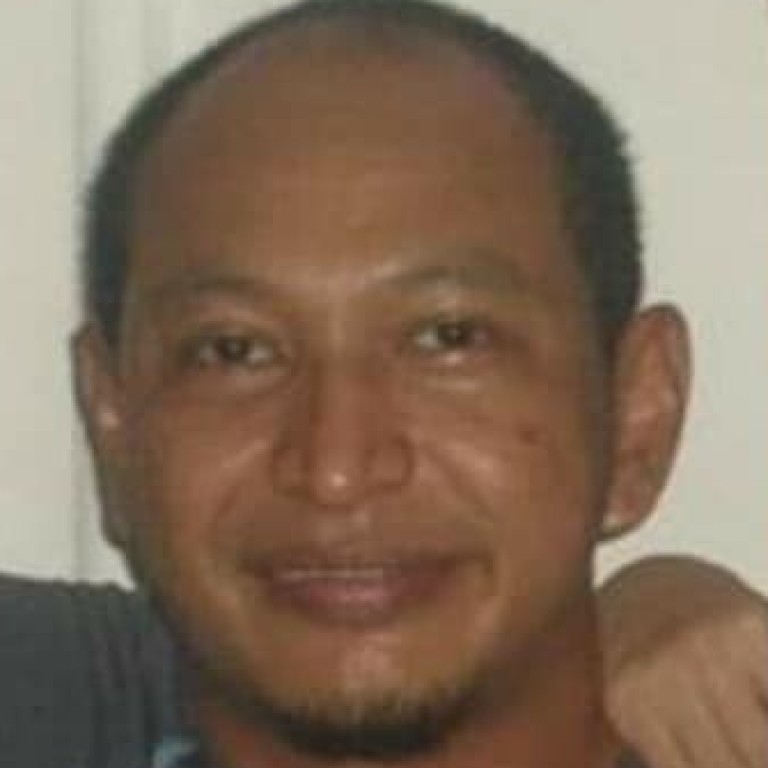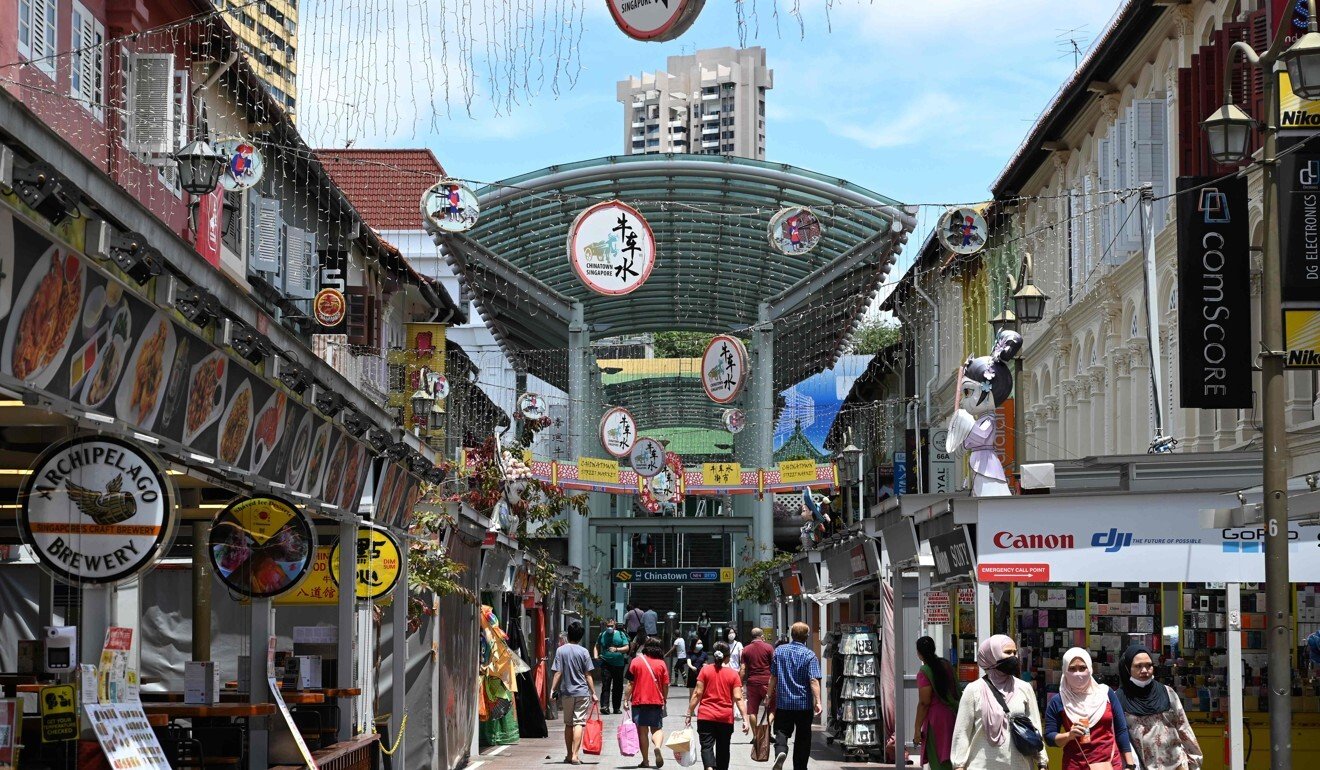
Singapore’s death penalty in the spotlight after court puts man’s execution on hold
- Syed Suhail Syed Zin was to be hanged last week for drug trafficking, but Covid-19 border closures meant his relatives in Malaysia could not visit him a final time
- The top court on Tuesday extended his reprieve, as his lawyer argued that the prison’s move to send Syed’s personal letters to prosecutors had jeopardised his case
The Court of Appeal – comprising Chief Justice Sundaresh Menon and Supreme Court Justices Andrew Phang and Judith Prakash – convened on Tuesday to hear arguments by human rights lawyer M. Ravi, who filed a judicial review application last Wednesday.
The High Court granted Syed a stay of execution following the application.
Indonesian helper who killed Singapore employer has conviction set aside
Following Tuesday’s open court session, which lasted nearly three hours, Menon told Ravi and the prosecutors to file their submissions within seven days, with the next hearing scheduled to be held not before October 7.
The case was thrust into the public eye last week when Ravi posted on Facebook a letter from Syed asking for his help, with the timing of the planned execution causing a significant buzz on social media.
In the handwritten note, Syed asked the lawyer – known for his anti-death-penalty advocacy – to intervene, outlining that his relatives living in Malaysia could not visit him for a last time due to border closures to curb the spread of Covid-19.
A subsequent online petition started by local musician Subhas Nair urging Singapore’s President Halimah Yacob to grant Syed clemency has garnered over 30,000 signatures, with activists saying this was a mark of the case’s unprecedented level of public attention.

Local activist group Community Action Network meanwhile put forth a separate argument for a stay of execution, citing a discovery by Ravi last week that the Singapore Prison Service had sent the Attorney General’s Chambers copies of some of Syed’s personal correspondence, including letters to his lawyer.
The group said this development raised questions about the public prosecutor’s respect for the inmate’s privacy, and had to be “carefully scrutinised as confidence in our judicial system is at stake”. It called for an independent inquiry into the matter and a moratorium on executions in the interim.
In court, Ravi argued that the prison service’s actions might have jeopardised Syed’s case, and said the incumbent team of prosecutors had to be replaced.
In response, deputy chief prosecutor Francis Ng said he had not seen the contents of the letters even though they had been sent to the Attorney General’s Chambers.
Malaysian activist gets death threats in fight for right not to wear hijab
The proceedings were at times testy, with Chief Justice Menon at one point ticking off Ravi for being “rude” as the lawyer sought to cut off Justice Phang mid-sentence.
Ravi’s arguments, over various issues including the clemency process and the controversy surrounding Syed’s letters, were sharply challenged by the court.
“Your eloquent choice of words is not going to make up for the lack of principle,” the chief justice told the lawyer.
Syed, seated in the dock, later said: “If you are speaking of fairness, using a lot of legal terminology, what I want, [along with the more than 50 other men] in gallows, is mercy. We want mercy to be extended to us. We feel that we can make a difference. Give us a chance.”
Chief Justice Menon responded by saying the court would prefer to converse with the lawyers.

01:08
Coronavirus: Singapore uses pilotless drones to monitor social distancing
Speaking to reporters after the court session, Ravi said Syed had told him Singaporean citizens were being scheduled to be executed first given that foreign inmates were for now unable to receive visits from their overseas-based families.
“He is unequally treated, the fact that those [who] committed [crimes] earlier did not get executed before him,” said Ravi. “He should be executed much later.”
According to prison data, four people were executed last year – two for drug offences, while the other two were convicted of murder. In 2018, 13 people were executed, including 11 convicted of drug offences.
Capital punishment has been carried out in Singapore since the days of colonial rule. While the local abolitionist movement has grown over the years, the government maintains that its tough stance – including the imposition of the death penalty for severe drug offences – has widespread public support.
Changi Airport chairman resigns after acquittal of former domestic worker
The extraordinary circumstances of Syed’s case saw some commentators urging more introspection on how the death penalty was meted out.
Earlier on Tuesday, citing the copying of his letters, local political commentator Sudhir Vadaketh penned a post on Facebook questioning whether the “Singapore Prison Service was immorally and illegally helping the Attorney General’s Chambers secure death sentences against inmates, including our fellow Singaporeans”.
He wrote: “I would say all this about any case before the courts, of course, but society arguably has a greater ethical burden when a defendant faces death – it is the ultimate penalty so there should be absolutely no doubt that the accused got the fair treatment he/she was entitled to.”
Until a review in 2012, certain charges in Singapore carried a mandatory death sentence if the accused was found guilty. Following the changes, drug traffickers found to be couriers and who were granted so-called certificates of substantive assistance by prosecutors for aiding broader investigations are eligible for a reprieve from capital punishment. Syed was not granted such a certificate.
As of 2017, 106 countries had abolished the death penalty and 142 were abolitionist in law or practice, according to the Death Penalty Information Center.
Capital punishment is meted out for drug-related crimes in 15 countries, but according to rights group Amnesty International only four countries recorded executions for drug offences in recent years – Singapore, Iran, Saudi Arabia, and China.


